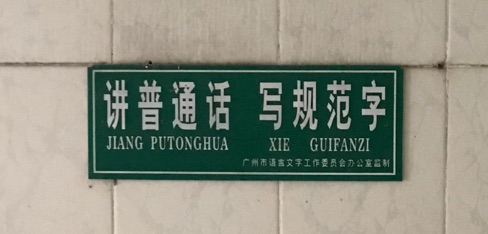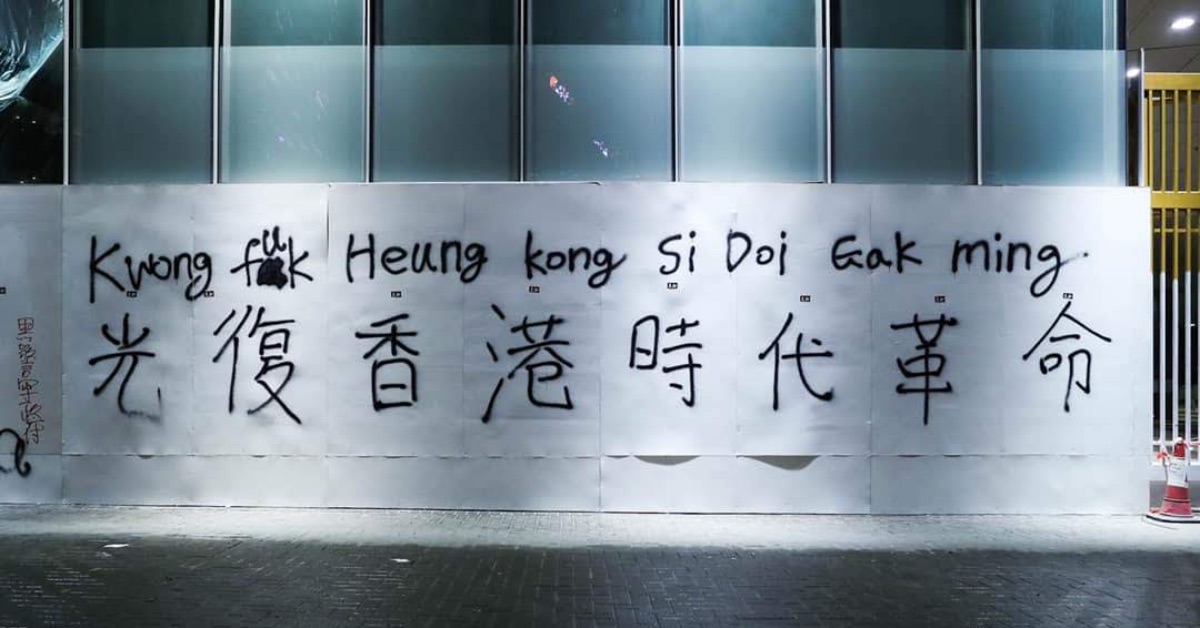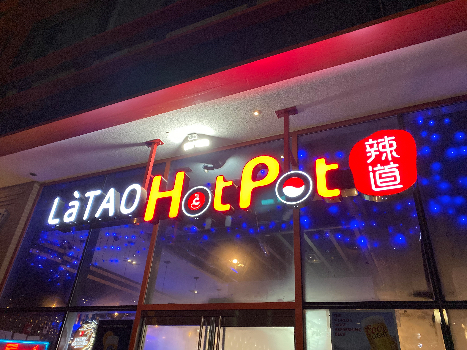Archive for Romanization
Korean Romanization
I can't think of another language in the world where the Romanization situation is more chaotic than it is for Korean. There are seven schemes in common use:
- Revised Romanization of Korean (RR, also called South Korean or Ministry of Culture (MC) 2000): This is the most commonly used and widely accepted system of romanization for Korean. It includes rules both for transcription and for transliteration. South Korea now officially uses this system which was approved in 2000. Road signs and textbooks were required to follow these rules as soon as possible, at a cost estimated by the government to be at least US$500–600 million. Almost all road signs, names of railway and subway stations on line maps and signs etc. have been changed. Romanization of surnames and existing companies' names (e.g. Hyundai) has been left untouched; the government encourages using the new system for given names and new companies.
- RR is similar to MR [see next item], but uses neither diacritics nor apostrophes, which has helped it to gain widespread acceptance on the Internet. In cases of ambiguity, orthographic syllable boundaries may be indicated with a hyphen, although state institutions never seemed to make use of this option until recently. Hyphenation on street and address signs is used to separate proper names and numbers from their assigned function. As of 2014, under mandate from the Roadname Address Act, Korea Post officially changed the older address system from lot-based district subdivisions to a street-based system that regularly utilizes hyphenation in order to disambiguate. The Ministry of the Interior also provided the public with various service announcements and websites forewarning of the change toward a clear and complete signage system classifying all streets and individual addresses with romanization (of which hyphenation is a systematic part).
- McCune–Reischauer (MR; 1937?): the first transcription to gain some acceptance. A slightly modified version of MR was the official system for Korean in South Korea from 1984 to 2000, and yet a different modification is still the official system in North Korea. MR uses breves, apostrophes and diereses, the latter two indicating orthographic syllable boundaries in cases that would otherwise be ambiguous.
- Several variants of MR, often also called "McCune's and Reischauer's", differ from the original mostly in whether word endings are separated from the stem by a space, by a hyphen or not at all; and if a hyphen or space is used, whether sound change is reflected in a stem's last and an ending's first consonant letter (e.g. pur-i vs. pul-i). Although mostly irrelevant when transcribing uninflected words, these variants are so widespread that any mention of "McCune–Reischauer romanization" may not necessarily refer to the original system as published in the 1930s. MR-based romanizations have been common in popular literature until 2000.
Read the rest of this entry »
A revolution in Sinitic language conceptualization and learning
[The following is a guest post by Georgi Mladenov]
I am another student who seems to have hit a brick wall in learning Mandarin, and I would like to ask you for advice. I have thoroughly read most of your forum posts and I totally share your opinions on language learning, especially as expressed in this post.
Your post captures my situation in its entirety. "The first year of learning Mandarin was pure torture in the classroom" – it feels as if I had written that! In short, I have been studying Chinese in Taiwan for more than a year. I am fluent in English, German, Russian and Bulgarian, I have a B2 level in Polish, Spanish and Serbian, my French is quite good, my Latin is quite decent, and I also know some Hungarian.
However, my disappointment with Chinese teaching methods has been growing daily. No matter what language I learned, the main focus of any beginner's course has always been on pronunciation and mastering any peculiar "tricky" sounds. Not here, though. I personally know quite a few people who have passed TOCFL Level 3 and 4 (reading and listening) and still have no tones! Or students who still say "zh" instead of "z", or "s" instead of "sh", not to mention that many students do not differentiate between "zh" and "j", "sh" and "x", "ch" and "q". And most teachers still try to persuade us how bad Pinyin is.
Read the rest of this entry »
Devangari
No, that's not a mistake.
My son just called me about some Hindi books I wanted him to order for me. He asked, "Do they have to be in Romanization, or is it all right if they are in Devangari?"
The way he said the word "Devangari" made me chuckle. Of course, with a name like Thomas Krishna Mair, and having been around me and my Sanskrit and Hindi books for the first two decades of his life, he was familiar with the word and knew that it was the script in which those languages are written.
Read the rest of this entry »
Language Diversity in the Sinophone World
That's the title of a new book (Oct. 7, 2020) from Routledge edited by Henning Klöter and Mårten Söderblom Saarela, with the following subtitle: Historical Trajectories, Language Planning, and Multilingual Practices. I was present at the conference in Göttingen where the papers in the volume were first delivered and can attest to the high level of presentations and discussions.
This is the publisher's book description:
Language Diversity in the Sinophone World offers interdisciplinary insights into social, cultural, and linguistic aspects of multilingualism in the Sinophone world, highlighting language diversity and opening up the burgeoning field of Sinophone studies to new perspectives from sociolinguistics.
Read the rest of this entry »
"I am a Taiwanese" in Czech transcription
The speaker of the Czech senate addresses Taiwan's parliament alluding to JFK's ‘Ich bin ein Berliner’ — and finishes by saying "Wǒ shì Táiwān rén 我是台湾人" ("I am Taiwanese") in (an attempt at) Mandarin.
The video is in Czech but it's easy to spot where this happens — right before the ovation — at 1:12.
The video is embedded here:
"Vystrčil na Tchaj-wanu připomněl slavná slova Kennedyho. Dočkal se potlesku ve stoje", Zahraničí
You may have to watch through several ads in Czech. It's fun to listen to them.
Read the rest of this entry »
Candida Xu: a highly literate Chinese woman of the 17th century
Throughout history, female literacy in China was extremely low. It was only in the 20th century that sizable numbers of women were able to read. An exception to this general rule was Candida Xu (in Chinese called Xǔ Xú Gāndìdà, 许徐甘第大, Xǔ Xú shì 许徐氏,Xǔ Gāndìdà 许甘第大,Xú Gāndìdà 徐甘第大, and Gāndìdà 甘第大 [source]). The double surname Xǔ Xú 许徐 — highly unusual for a woman in premodern China — derives from her marriage to a man named Xǔ Yuǎndù 许远度, to whom she bore eight children. They observed the Catholic custom whereby the husband did not take concubines.
Read the rest of this entry »
Pinyin for ABCs
If you didn't know it already, "ABC" means "American-born Chinese". There's no reason why ABCs should necessarily speak Chinese, no more than why ABGs (American-born Germans) should speak German or why ABVs (American-born Vietnamese) should speak Vietnamese, etc. In this video, ABCs explain for themselves why they can't speak Chinese. This is a long (23:14) podcast. Feel free to watch all of it if you are so inclined, but for efficiency's sake I will guide you through it in instructions below the page break.
"10 REASONS WHY CHINESE AMERICANS CAN'T SPEAK CHINESE! | Fung Bros"
Read the rest of this entry »
"Was he reading Hanzi, or Hanyu Pinyin?"
A commenter to this post, "Matthew Pottinger's speech in Mandarin" (5/9/20) posed the questions in the title. These are interesting questions that raise important issues.
Since I don't know Matthew Pottinger, I am unable to say for sure what he was reading, whether it was Hanzi, Hanyu Pinyin, or something else. The reason I say "something else" is because his teacher, Perry Link, was a strong advocate of Gwoyeu Romatzyh spelling, aka GR or the National Language Romanization system, so it may have been that.
For those who are not familiar with it, GR is a kind of tonal romanization in which the tones of words are spelled with letters. It is difficult to learn (though much less difficult than characters, of course!), but it is very effective in imprinting the tones of words in the heads of learners. Indeed, many of the best foreign speakers of Mandarin learned the language via GR, and they include Perry Link and Tom Bartlett.
Read the rest of this entry »
Tao vs. Dao: amazing restaurant sign near UPenn
I've eaten in this hot pot (huǒguō / WG huo3-kuo1 / IPA [xwò.kwó] 火锅 / 火鍋) restaurant at 3717 Chestnut St. on a number of occasions, and each time I go, I am struck by the creative sign out front:
Read the rest of this entry »




